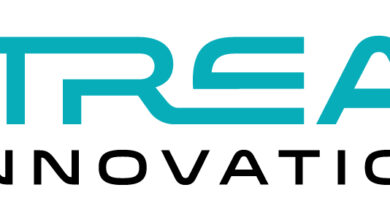Weekly Blockchain Blog – May 2024 #2 | BakerHostetler

Crypto and Web3 Firms Announce Fintech Integrations
A major U.S. fintech firm recently announced a product integration with MoonPay, a Web3 infrastructure company, “that allows MoonPay users in the U.S. to seamlessly buy cryptocurrency” using their account with the fintech firm. According to a press release, the integration enables MoonPay users to fund crypto purchases by using their account balance with the fintech firm, direct bank withdrawal or debit card, “all without manually inputting the necessary information.”
In another product integration, crypto exchange CEX.IO announced the launch of a crypto debit card supported by the payment network of a major financial services firm. According to a press release, the CEX.IO Card “empowers users to seamlessly spend their crypto assets on everyday purchases” and “make purchases with millions of merchants … in over 150 countries.”
In a final notable item, a major U.S. fintech firm recently published its Bitcoin Blueprint for Corporate Balance Sheets. The document provides an overview of the company’s “strategy for company-owned bitcoin held for investment purposes … including … historical purchase execution, storage mechanics, and insurance and accounting considerations.”
For more information, please refer to the following links:
Data Published on Stablecoin Use, Financial Sector Pilot Explores Tokenization
Data platform Allium Labs, together with a major U.S. payments corporation, recently launched an “Onchain Analytics Dashboard” that “showcases how fiat-backed stablecoins move via public blockchains globally.” According to the Onchain Analytics Dashboard website, the dashboard “can be accessed by anyone to better understand how fiat-backed stablecoins are moving across blockchain networks globally, and demonstrate the volumes and participants involved in the process.” According to a report, the data presented in the dashboard indicates less than 10% of stablecoin transaction volumes come from real people. Out of about $2.2 trillion in total transactions in April, only $149 billion originated from “organic payments activity,” the report said. The report said its analysis removed transactions done by bots and large-scale traders to “isolate those made by real people.” The report also finds that the stablecoin market supply currently is valued at about $150 billion, with tether (USDT) and USD Coin (USDC) dominating the market with shares of 75% and 22%, respectively.
Last week, members of the regulated U.S. financial sector announced a Regulated Settlement Network proof-of-concept (PoC) that will explore the feasibility of shared ledger technology to settle tokenized commercial bank money, wholesale central bank money, U.S. Treasury securities and other tokenized assets. According to a press release, the PoC reflects a collaborative effort by a diverse group of banks and other regulated financial industry participants to gain further consensus on the use of shared ledger technology in the U.S. financial system. A project manager of the PoC stated, “This exploration of shared ledger technology is an important initiative to explore innovations working with digital forms of USD cash and securities, as market participants continue to innovate to support efficient, resilient capital markets.”
For more information, please refer to the following links:
Crypto VC Fund Publishes Guidance for Token Launches
A major U.S. venture capital firm recently published a series of blog posts providing guidance on launching blockchain network tokens. The guidance seeks to address issues such as “[l]aunching tokens with productive use cases, tied to products and services that people can use,” and “establishing the point at which a project is reasonably positioned to overcome the legal, commercial, and operational challenges that come with launching a token.”
The first post in the series addresses how to develop product-market fit, an actionable plan for decentralization, compelling token economic models, robust organization structure and operational readiness. The second post discusses how to navigate token launch risks, including legal, commercial and operational risks. The third post addresses operational guidelines for token launches, including coordinating with custodians, conducting security audits, allocating and distributing tokens, ensuring enforcement of lockups, and enabling staking and governance.
The fourth and final post sets forth and discusses the following “five rules for token launches”: (1) “Never publicly sell tokens in the U.S. for fundraising purposes”; (2) “Make decentralization the North Star”; (3) “Communication is everything. Govern yourself accordingly”; (4) “Be careful about secondary market listings and liquidity”; and (5) “Always make token lockups apply for at least one year from token launch.” In related news, according to recent reports, in April, venture capital funding in the cryptocurrency and Web3 market surpassed $1 billion for the second consecutive month this year.
For more information, please refer to the following links:
Crypto Trading Platform Receives SEC Wells Notice and Responds
According to a press release by a major financial services company, the company has received a Wells notice from the U.S. Securities and Exchange Commission (SEC) relating to the cryptocurrencies traded on its platform. The SEC issues Wells notices to notify a company that it is being investigated and that the SEC may bring an enforcement action against the company. In the press release, the company’s chief legal officer (CLO) said, “We firmly believe that the assets listed on our platform are not securities and we look forward to engaging with the SEC to make clear just how weak any case against [the company] would be.” According to reports, the CLO expressed disappointment that the SEC would issue a Wells notice after the company has been trying in good faith to register with the SEC as a limited purpose broker-dealer. Based on reports, the company has not listed certain tokens and has not provided certain products that the SEC has alleged are securities.
For more information, please refer to the following links:
Crypto Enforcement Actions Announced by DOJ, Australian Tax Office
The U.S. Department of Justice (DOJ) recently published two press releases announcing crypto-related enforcement actions. One press release announced that a Russian national, Alexander Vinnik, pleaded guilty “to conspiracy to commit money laundering related to his role in operating the cryptocurrency exchange BTC-e from 2011 to 2017.” According to the press release, “From its inception in or around 2011 until it was shut down by law enforcement in or around July 2017 contemporaneous with Vinnik’s arrest, BTC-e processed over $9 billion-worth of transactions and served over one million users worldwide, including numerous customers in the United States.”
Another DOJ press release announced that the former CEO, CFO and CCO of Cred LLC have been charged with “wire fraud conspiracy and related crimes in connection with their respective roles in an alleged scheme to defraud customers and investors in Cred, LLC (Cred) allegedly causing losses of customer cryptocurrency assets with a market value that may have exceeded $780 million.” According to the press release, “Cred, a San Francisco-based financial services firm that specialized in making investments in cryptocurrencies, filed for Chapter 11 bankruptcy on November 7, 2020.”
In foreign enforcement news, according to reports, the Australian Taxation Office (ATO) is seeking account details from cryptocurrency exchanges in an effort to identify crypto traders who failed to report transaction gains. The ATO is reportedly seeking details on up to 1.2 million cryptocurrency exchange accounts.
For more information, please refer to the following links:
Senators’ Letter to Biden Administration Warns of Iranian Crypto Mining
A recently released letter by Sens. Elizabeth Warren and Angus S. King Jr. urged the Biden administration to increase its efforts to combat cryptocurrency mining in Iran. According to the letter, cryptocurrency mining is allowing Iran to circumnavigate U.S. and international sanctions and is potentially linked to “$165 million in crypto transactions over the past three years that may be linked to Hamas.” The letter states that “Iran has raised millions of dollars through mining crypto,” allowing it to fund terrorist organizations. The letter cites estimates that Iranian bitcoin mining may have produced as much as $1 billion in revenue in 2021, allowing Iran to monetize energy resources that the country may not have been able to export due to sanctions. The letter also asserts that Iran uses cryptocurrency to launder funds. According to the letter, Iran’s largest crypto exchange, Nobitex, “provides guidance on its website on avoiding sanctions” and most of “$8 billion worth of Iranian crypto transactions in a four-year period” flowed through the exchange during that time period.
For more information, please refer to the following link:
[View source.]



